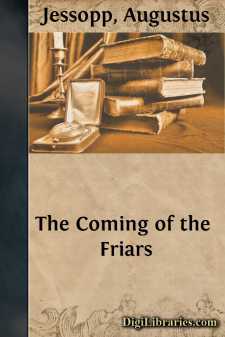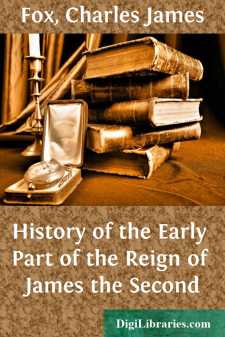History
- Africa 30
- Americas (North Central South West Indies) 50
- Ancient 68
- Asia 58
- Australia & New Zealand 8
- Canada 41
- Caribbean & West Indies 1
- Civilization 20
- Eastern Europe 12
- Europe 310
- Expeditions & Discoveries 60
- General 77
- Historical Geography 1
- Jewish 9
- Latin America 3
- Medieval 8
- Middle East 13
- Military 248
- Revolutionary 8
- Study & Teaching 5
- United States 353
- Western Europe 56
- World 13
History Books
Sort by:
1788. (CONTINUED.) THE KING'S ILLNESS—CONDUCT OF THURLOW—PLANS OF MINISTERS—DISCUSSIONS IN PARLIAMENT—IRISH VIEW OF THE REGENCY QUESTION—PROCEEDINGS OF THE PRINCE'S PARTY—THE RATS IN BOTH HOUSES. The fluctuations of the daily accounts from Windsor, and afterwards from Kew, to which place the King was ultimately removed at the instance of the Prince of Wales, and the effect they...
more...
by:
Charles Greville
When the first portion of the Memoirs of the late Mr. Charles Greville, consisting of a Journal of the Reigns of King George IV. and King William IV., was given to the world in the autumn of the year 1874, it was intimated that the continuation of the work was reserved for future publication. Those volumes included the record of events which Mr. Greville had noted in his Diary from the year 1818 to the...
more...
Our Sailors. “Let fall the topsails, hoist away—up anchor, round goes the capstan—sheet home—haul taut the braces! and away we glide, to prove to our countrymen that British sailors have not been sleeping on beds of roses for the last quarter of a century since her gracious Majesty Queen Victoria came to the throne.” So wrote our author some forty years ago. “Up anchor, full speed ahead,”...
more...
The Sea is His: He made it,Black gulf and sunlit shoalFrom barriered bight to where the longLeagues of Atlantic roll:Small strait and ceaseless oceanHe bade each one to be:The Sea is His: He made it—And England keeps it free. By pain and stress and strivingBeyond the nations' ken,By vigils stern when others slept,By lives of many men;Through nights of storm, through dawningsBlacker than...
more...
THE TUDOR PERIOD, 1485-1603 [Sidenote: An era of Revolutions] The historian of the future will, perhaps, affirm that the nineteenth century, with the last years of the eighteenth, has been a period more fraught with momentous events in the development of the nations than any equal period since the Christian era commenced. Yet striking as are the developments witnessed by the last four generations, the...
more...
THE PROTESTANTS. Where changes are about to take place of great and enduring moment, a kind of prologue, on a small scale, sometimes anticipates the true opening of the drama; like the first drops which give notice of the coming storm, or as if the shadows of the reality were projected forwards into the future, and imitated in dumb show the movements of the real actors in the story.Prelude to the...
more...
I. THE PROLOGUE. 1. Nennius, the lowly minister and servant of the servants of God, by the grace of God, disciple of St. Elbotus,* to all the followers of truth sendeth health. * Or Elvod, bishop of Bangor, A.D. 755, who first adopted inthe Cambrian church the new cycle for regulating Easter. Be it known to your charity, that being dull in intellect and rude of speech, I have presumed to deliver these...
more...
PREFACE. Once more I come before the public with a work on the history of a nation which is not mine by birth. It is the ambition of all nations which enjoy a literary culture to possess a harmonious and vivid narrative of their own past history. And it is of inestimable value to any people to obtain such a narrative, which shall comprehend all epochs, be true to fact and, while resting on thorough...
more...
by:
Augustus Jessopp
THE COMING OF THE FRIARS. Sweet St. Francis of Assisi, would that he were here again!—LordTennyson. When King Richard of England, whom men call the Lion-hearted, was wasting his time at Messina, after his boisterous fashion, in the winter of 1190, he heard of the fame of Abbot Joachim, and sent for that renowned personage, that he might hear from his own lips the words of prophecy and their...
more...
INTRODUCTION. Fox’s “History of the Reign of James II.,” which begins with his view of the reign of Charles II. and breaks off at the execution of Monmouth, was the beginning of a History of England from the Revolution, upon which he worked in the last years of his life, for which he collected materials in Paris after the Peace of Amiens, in 1802—he died in September, 1806—and which was first...
more...











